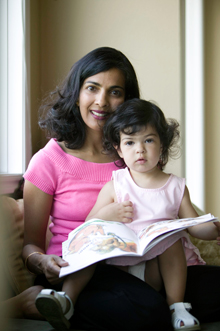 Someone recently told me—quite flippantly, I might add—that they view U.S. politics as a source of entertainment and escapism. While I did not agree, I understood their position. In the wake of the contentious 2016 presidential election, U.S. political news coverage has taken on a particularly charged and riveting quality—an almost surreal, movie-like dimension. Many people, both within the U.S. and beyond its borders, are engrossed by the nonstop reel of political news. But is this healthy for us? What about young people?
Someone recently told me—quite flippantly, I might add—that they view U.S. politics as a source of entertainment and escapism. While I did not agree, I understood their position. In the wake of the contentious 2016 presidential election, U.S. political news coverage has taken on a particularly charged and riveting quality—an almost surreal, movie-like dimension. Many people, both within the U.S. and beyond its borders, are engrossed by the nonstop reel of political news. But is this healthy for us? What about young people?
It may appear that we have become desensitized to the onslaught, but studies show that watching the news raises cortisol (the stress hormone) levels in the brain, and that parents pass stress onto children through a trickle-down effect. Children are especially vulnerable to the effects of direct media exposure; in a recent Common Sense Media survey, 63% of children said the news has a negative impact on their mood.
By modeling purposeful news consumption, adults can help children practice active citizenship and become critical consumers of today’s increasingly complex technology. In the age of “fake news,” young people need tools and guidance to help them think critically about information.
Engage in family reading time
Family reading time builds emotional bonds and is mentally restorative. Set aside quiet, distraction-free time to allow children to immerse themselves in books. Create rituals around story time, listen to what they have to say, and prompt them to make connections between the stories in books, news stories, and the things that are happening in their own lives. Use the think-aloud strategy to model text-to-world connections (i.e., “What I just read makes me think about X event in our community/country/world.”) and help children to think about “What if this happened to us?” For an at-home reading activity, children can create a news timeline of top news stories related to books they have read. Emphasize that news reports aren’t always true, then use picturebook biographies to discuss the parts of stories that are factual and the parts that are made-up.
Choose diverse books
As xenophobic, sexist, racist, and homophobic rhetoric becomes increasingly commonplace, young readers need empowering, accessible books that celebrate diversity, tolerance, and social justice. The right books and stories can open doors for meaningful conversations and propel young people toward civic engagement. Teaching for Change, Horn Book Magazine, the American Library Association, and the International Literacy Association's Children's Literature and Reading Special Interest Group (CL/R SIG) all provide applicable book lists.
Embrace community-based learning
Reinforce book learning by providing real-life opportunities for children to act as socially engaged citizens. Activities that allow children to disconnect from their devices and connect with reality bolster their well-being and social awareness. Participating in multicultural events in the community, visiting a polling station or local community health center, or volunteering at a park clean-up project are just a few ways children can practice the civic values and cement the lessons gleaned from books.
Young people may not understand everything that’s being discussed on the news, but they know and feel enough to be concerned. The simple act of reading, and reading regularly, can guard children against stress and support social-emotional development. Even more, books exercise the imagination, and one of the best things we can do for children, perhaps now more than ever, is help them imagine a better world, and empower them to act on that vision.
 Summer Edward is the foundress and editor-in-chief of Anansesem, a Caribbean children’s literature e-zine, a Highlights Foundation alumna, and a former judge of Africa’s Golden Baobab Prizes for children’s literature. As a teaching artist, writing tutor, mentor, workshop leader, editor, and kamishibai storyteller, she helps children understand the power of words and stories. She teaches at the University of the West Indies and lives in Trinidad and Philadelphia.
Summer Edward is the foundress and editor-in-chief of Anansesem, a Caribbean children’s literature e-zine, a Highlights Foundation alumna, and a former judge of Africa’s Golden Baobab Prizes for children’s literature. As a teaching artist, writing tutor, mentor, workshop leader, editor, and kamishibai storyteller, she helps children understand the power of words and stories. She teaches at the University of the West Indies and lives in Trinidad and Philadelphia.